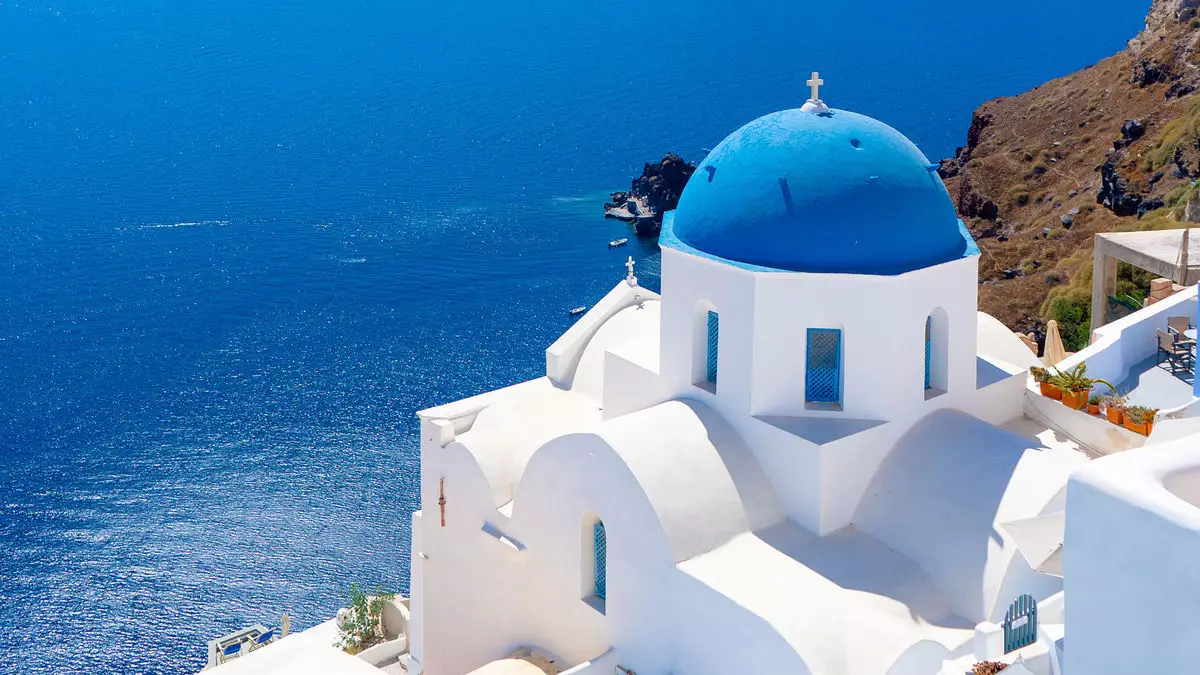As Santorini embarks on its bustling tourist season, the island’s hospitality industry is currently grappling with the lingering effects of natural occurrences that occurred earlier this year. A series of minor earthquakes, starting in late January, prompted local authorities to declare a state of emergency and carry out temporary evacuations on Santorini and its neighboring islands. Despite these seismic disturbances being relatively low in magnitude and resulting in no significant damage or injuries, they have caused noticeable ripples in the tourism industry, interrupting a crucial booking window. The challenge lies not only in dealing with the seismic realities but also in managing public perception.
Markos Chaidemenos, the managing director of Canaves Collection—a collection of luxury hotels—characterizes the recent events as a “PR disaster.” He emphasizes that while the earthquakes have abated, the media narrative often portrays Santorini as severely affected. This discourse can be detrimental; it does not just impact the island’s reputation but threatens its economic vitality, particularly in an era when tourism is pivotal for local livelihoods. Stakeholders fear that the misunderstanding of the situation may deter potential visitors and skew their decision-making during the booking season.
Efforts Toward Reassurance
To combat the negative press and restore traveler confidence, tourism officials and industry leaders have united in delivering a message of normalcy. On March 20, Greek tourism minister Olga Kefalogianni reassured the public, asserting that both tourism and essential infrastructure are functioning smoothly. Aligning with this message, hospitality leaders emphasize substantial structural assessments and inspections performed throughout the island, bolstering assurance that locals and travelers alike are safe to resume their plans.
George Pitsinelis, the general manager of the Magma Resort Santorini—part of Hyatt’s Unbound Collection—echoes this sentiment, stating that business on the island has returned to typical rhythms. With the return of cruise ships and operations of hotels and restaurants, local entrepreneurs and hoteliers are preparing to welcome guests. The critical task is rebuilding trust and encouraging travel to Santorini, allowing visitors to experience its unparalleled beauty and allure without apprehension.
Booking Trends: Resilience Amid Challenges
Despite earlier fears regardingBooking trends in Santorini, many local businesses have found ways to adapt and navigate these challenges. Although there have not been significant cancellations attributable to the quakes, the pace of incoming reservations has indeed slowed. Travel advisors have reported that clients expressed initial concerns but chose to wait for further developments rather than cancel their trips. Christos Stergiou, CEO of TrueTrips, characterizes this hesitation as indicative of the need for reassurances that Santorini remains a desirable destination.
As the atmosphere of uncertainty begins to dissipate, there’s a marked resurgence in booking activity. With travelers eager to experience the island’s picturesque beauty this summer, there has been a shift towards last-minute bookings, as many are opting for flexibility. Travel agents are witnessing renewed interest, notably for travel in May and June, suggesting that many potential visitors are growing increasingly confident in their choices to enjoy Santorini again.
Economic Impacts Beyond Seismic Activity
While the earthquakes have undoubtedly influenced booking dynamics, broader economic factors continue to shape travel behaviors. Rising airfares, inflation concerns, and global uncertainties are significant deterrents that could lead to a downturn for Greek tourism overall. Travel experts suggest that these economic realities are prompting travelers to consider lesser-known European destinations, which provide more value for their money.
Petros Zissimos from Hellenic Holidays notes that economic anxieties coupled with changing tourist patterns significantly affect travel plans. There’s evidence of travelers shifting away from peak-season crowds, opting instead for visits in June or September, leading to unexpected availability during traditionally busy months. The potential decline in visitors is not solely attributed to the earthquakes but also reflects an evolving traveler mindset regarding cost and convenience.
Establishing a new narrative around Santorini requires grappling with these multifaceted challenges while revamping marketing strategies to reflect the changing tides of travel interest. Being proactive in addressing perceptions and emphasizing the island’s ongoing charm and allure will be pivotal for a successful recovery in tourism.


Leave a Reply